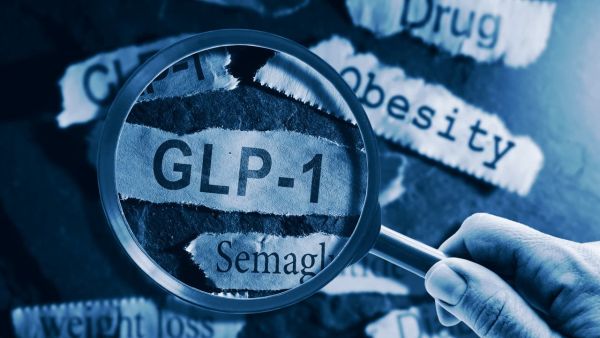
Scientists believe that drugs used to treat diabetes and help with weight loss, such as Ozempic and Wegovy, might also help people reduce their alcohol consumption. A recent study from the Fralin Biomedical Research Institute in the United States suggests these medications could lower alcohol intake by slowing the rate at which alcohol enters the bloodstream. This could reduce its effects on the brain and possibly decrease the urge to drink more.

The research looked at a class of drugs known as GLP-1 receptor agonists, which includes semaglutide, tirzepatide, and liraglutide. These are commonly prescribed to help manage type 2 diabetes and support weight loss. It was published in Scientific Reports.
"People who drink know there's a difference between nursing a glass of wine and downing a shot of whiskey," said Professor Alex DiFeliceantonio, one of the researchers involved in the study.
Even though both drinks may contain the same amount of alcohol, a shot is absorbed into the body much faster. This quick increase in blood alcohol level can lead to a feeling of being more intoxicated, and this rapid effect is often linked to a higher risk of alcohol misuse.
Alcohol use is very common. Over half of American adults drink alcohol, and about 1 in 10 face challenges with alcohol use disorder. Excessive drinking is linked to serious health problems, including heart disease, liver damage, and several types of cancer. In fact, alcohol is the third leading preventable cause of cancer in the US, after smoking and obesity.
In this study, people taking GLP-1 drugs showed a slower increase in blood alcohol levels, even though they consumed the same amount of alcohol as those not on the medication. They also reported feeling less drunk during the testing session.
The research team hopes this small study will lead to larger, long-term trials that explore whether GLP-1 drugs could be used to help people cut back on alcohol in a safe and effective way.
The study involved 20 adults with a body mass index (BMI) of 30 or higher. Half of the participants were taking a GLP-1 drug, while the other half were not. To keep the conditions consistent, all participants fasted before the session and were given the same snack bar to eat. They then drank a standard alcoholic drink, which they were asked to finish within 10 minutes.
After that, the researchers measured their breath alcohol levels, blood sugar, pulse, and blood pressure. Participants were also asked questions like, “How drunk do you feel right now?” using a 0 to 10 scale. Those on GLP-1 drugs consistently rated themselves as feeling less intoxicated.
They were then monitored in a recovery area for several hours while their alcohol levels decreased. Once their breath alcohol levels were safely below the legal limit, they were allowed to go home.
There are already medications available to help people reduce alcohol use, such as naltrexone and acamprosate. These target the brain directly. What's different about GLP-1 drugs is that they seem to work in another way: by slowing digestion, they slow the body's absorption of alcohol.
The study was partly inspired by online posts on platforms like Reddit, where people taking diabetes or weight-loss medications noticed they had less interest in alcohol. It was led by the late Professor Warren Bickel, an expert in addiction recovery who passed away in 2024.
His research focused on how people respond to delayed rewards, such as choosing long-term health over short-term pleasure.
While this was a small, early study, the results are promising. The research team believes these findings support further investigation into whether GLP-1 drugs could become part of future treatment options for those struggling with alcohol use.
Fatima Quddos, the study’s lead author and a recent PhD graduate, said she hopes this work will not only advance science but also offer real help to people.